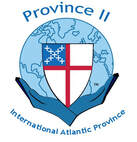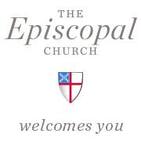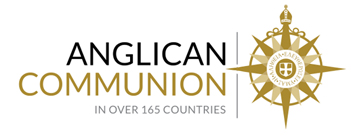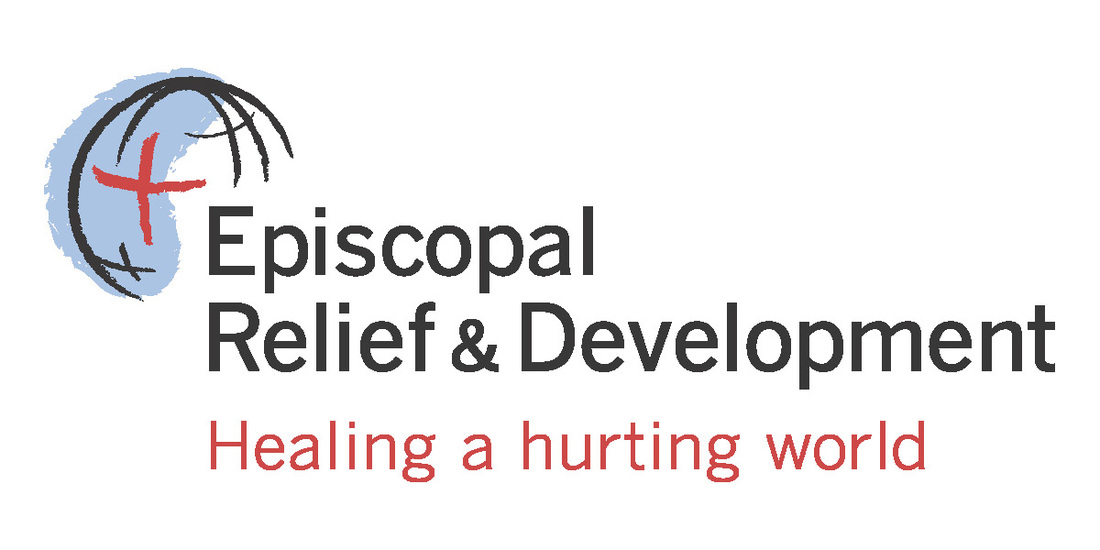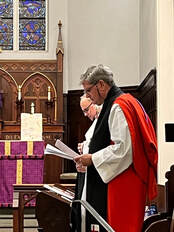 Figure 6: Bishop William Stokes, Diocese of New Jersey (photo Rev. Beth Rauen Sciaino) Figure 6: Bishop William Stokes, Diocese of New Jersey (photo Rev. Beth Rauen Sciaino) Trenton, New Jersey, March 28, 2023 The Reparations Commission of the Episcopal Diocese of New Jersey held a Stations of Reparations liturgy at historic St. Peter’s Church, Freehold, New Jersey, on Saturday, March 25, 2023 (video). The innovative family service engaged the over eighty participants from around the state and nation to consider the Church’s history of oppression of Africans and African-Americans, inviting a response of repentance. Anchoring the service in a collaborative historical effort, representatives of five early New Jersey Episcopal congregations described how the founders and clergy of their congregations participated in the practice of slavery. These congregations shared their history in the liturgy: St. Peter’s Church in Freehold, Trinity Church in Princeton, Christ Church in New Brunswick, Christ Church in Shrewsbury, and Trinity and St. Philip’s Cathedral in Newark. Each congregation named those founders who enslaved laborers in agricultural and mining operations in and outside New Jersey, as well as those clergy who kept slaves in their households or condoned slavery through their teaching and ministry. Following each witness to the historical record the assembled congregation joined in a refrain of prayer: “Emmanuel, God-with-us, give us courage to awaken to and repent for our history of enslavement in New Jersey. As we seek to repair and restore our communities, may we trust that you charge us, O God, with co-creating a world that is loving, liberating, and life-giving for all. Amen.” 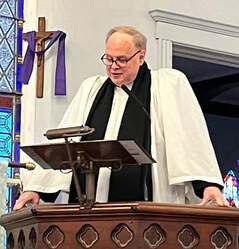 Figure 2: The Rev. Dirk Reinken, Rector, St. Peter's, Freehold. (photo Rev. Beth Rauen Sciaino) Figure 2: The Rev. Dirk Reinken, Rector, St. Peter's, Freehold. (photo Rev. Beth Rauen Sciaino) The Rev. Dirk Reinken, priest at St. Peter’s Freehold drew participants’ attention to the very room in which they sat: “we know that the Throckmortons who are memorialized in the window right here counted in their will no less than seven enslaved individuals.” Reinken went on to share that early New Jersey Anglicans did not merely enslave Black people, but actively contributed to the broader system of oppression that worked to keep Blacks enslaved. He noted: “one of the other petitioners for [St. Peter’s] royal charter was the sheriff of Monmouth county, who published … accounts of those escaped individuals he arrested and returned to their enslavers.” Parishioners of Christ Church, Shrewsbury read and remembered the names of the baptized enslaved preserved in their parish register. Nineteen year-old Kyra Pruszinski, a researcher at Trinity Church, Princeton shared that Trinity was established “through the initiative and donations of the Stockton and Potter families, [who owned a] sugar plantation in Brunswick, Georgia on which at least 108 Black people were enslaved. … [and the] Coleraine Tweedside plantation in Georgia, where at least 423 people were enslaved.” 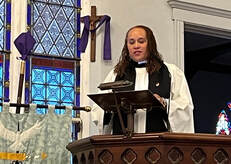 Figure 2: The Rev. Dirk Reinken, Rector, St. Peter's, Freehold. (photo Rev. Beth Rauen Sciaino) Figure 2: The Rev. Dirk Reinken, Rector, St. Peter's, Freehold. (photo Rev. Beth Rauen Sciaino) Ann Calloway, the parish historian at Trinity and St. Philips’ Cathedral in Newark, an Episcopalian since 1936, told about Colonel Ogden, the founder of Trinity, Newark: “Colonel Ogden was a wealthy man… [and] we know that [he] did not take that wheat out of those fields by himself… We also know that Colonel Ogden did not work his own mines. All those [tasks] were done by slaves… And the balcony that is built in the Cathedral was not built to house extra communicants. [It] was built for the slaves of the owners who owned the pews in the Cathedral… Each slaveowner owned one of those boxes where his slaves sat. So the church welcomed the slaves and their families, they baptized over 1000 children, but they condoned slavery.” 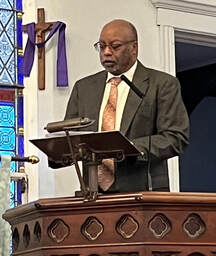 Figure 4: Jonathan Gloster, Vestry, Christ Church, New Brunswick (photo Rev. Beth Rauen Sciaino) Figure 4: Jonathan Gloster, Vestry, Christ Church, New Brunswick (photo Rev. Beth Rauen Sciaino) Jonathan Gloster, a member of the Reparations Commission, and a vestry member at Christ Church, New Brunswick shared that: “The oldest person now interred in the Christ Church graveyard is Dinah, there is no surname, just Dinah... Dinah died in 1866, in service to the Boggs household, whose family members are also buried in the graveyard of Christ Church. [She was] 106 years old at the time of her death. Her life spanned from before the Revolution to the Emancipation Proclamation. Born enslaved, and died free.” He went on to connect this with more recent history: “The legacy of colonial times continued for Blacks at Christ Church well into the 20th century. Blacks were members of the church, but they were not seated with Whites. In the 19th and 20th century Blacks were seated in the gallery, along with those who could not afford pew rents. When pew rents were abolished in the early 1920s the decision was made to relocate the organ from the chancel to the gallery, displacing the Black members of the church… The displaced African American members formed their own parish, St. Alban’s Episcopal church in New Brunswick.” Rev. Joanna Hollis, the rector of Christ Church, where the first Bishop of the Diocese, John Croes, kept slaves during his decades-long rectorate, concluded the sharing of parish histories saying: “And so here I am, the rector of a parish with a long history of slavery. Every Sunday I stand in the chancel and look down at the cross that marks [where] Bishop Croes is buried underneath my feet… [and] I do not take lightly the significance of my presence as the first Black rector of Christ Church… I link the far past to the present by virtue of my own enslaved ancestors and pray that I am doing them proud. And I pray that I am doing right by Dinah and by the many enslaved people who were connected with Christ church. I quite literally am their wildest dream. Yet there is still so much more work to do. So much to atone for. And with God’s help we can do what needs to be done.” Afterward, Bishop Stokes described the service as “profound.” “It was a powerful and poignant experience,” he said. In his blessing he invited those present to “discomfort [with] easy answers, half-truths, and superficial relationships… [to] anger at injustice, oppression, and exploitation of people,” and to the “foolishness to believe that you can make a difference in this world so that you can do what others claim cannot be done.” The idea for a liturgy of Stations of Reparations emerged from the History Working Group of the diocesan Reparations Commission as it uncovered the complicity of New Jersey’s colonial era Anglican congregations in enslavement. A few congregations had already begun researching their ties to slavery. However, the broader scope of congregational and institutional involvement in slavery began to emerge from recent investigations by Dr. Jolyon Pruszinski, the historian who started working with the Reparations Commission in September, 2022. The Commission believes it is essential to tell the story of slavery’s place in the Church in diverse ways, including in the context of worship. The core of the Stations of Reparations service was modeled on the traditional Stations of the Cross in which a portion of the story of Jesus’ Passion is told at each Station within a repeating structure of prayer. Each congregation’s “station” included an excerpt from Dark Testament and Other Poems (1970) by the Reverend Dr. Pauli Murray. Murray was the first Black woman ordained a priest in the Episcopal Church. She was recently added to Lesser Feasts and Fasts. Many stories discovered through the ongoing Diocese of New Jersey Racial Justice Review were not included in the Stations of Reparations service held on March 25, but are available to read about through the project website. The site provides resources for congregations wishing to research their history and has begun documentation of initial findings, some of which were shared in the service.
The call for reparations is rooted in the concept of making amends for past wrongs. Specifically, it is a call to acknowledge and address historical and ongoing injustices, systemic racism, and discrimination. The reparations movement seeks redress for ways in which enslavement and its legacies have excluded Black Americans from full participation in American society and severely restricted their economic, educational, political, and social opportunities. Additional information as well as images are available from the Reparations Commission of the Diocese of New Jersey. For more information please contact:
Submitted by Rev. Jack Zamboni, Rev. Megan Thomas, and Dr. Jolyon Pruszinski Comments are closed.
|
Archives
April 2024
Categories |

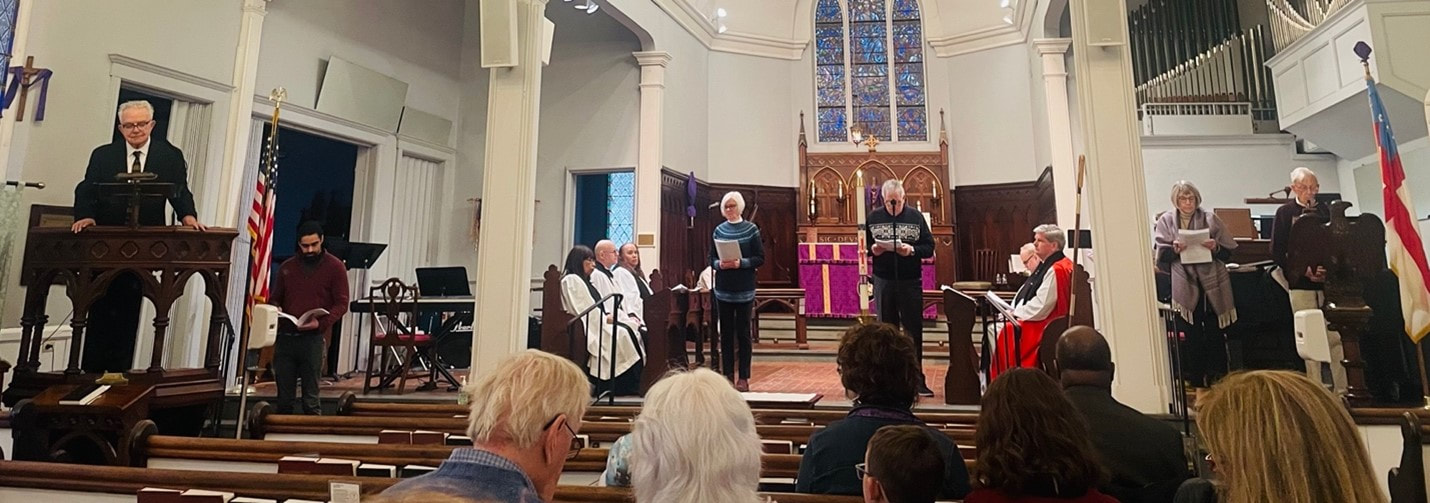
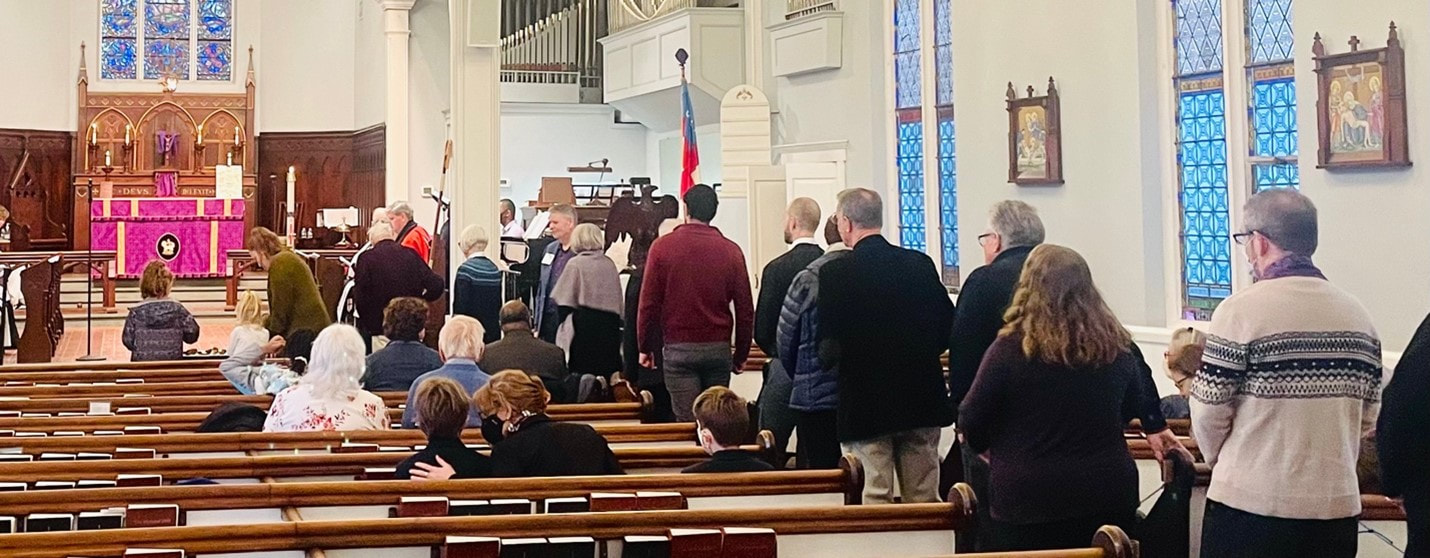
 RSS Feed
RSS Feed
